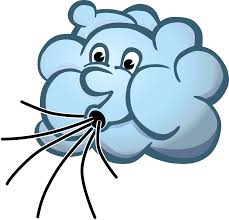The National Weather Service has issued a winter weather advisory with extreme cold temperatures warning for St Clair County which remains in effect until Thursday, January 31, 2019. Occasional lake effect snow squalls could develop tonight. The most intense squalls will cause extremely dangerous travel conditions. Light to moderate snow accumulation is possible tonight mainly between the I-96 and I-69 corridors.
.DAYS TWO THROUGH SEVEN…Wednesday through Monday – A wind chill warning is in effect. See the forecast for detail. Light snow accumulation will be possible Wednesday morning between between the M-59 and I-69 corridor as any lake effect snow tapers off.
The St. Clair County Office of Homeland Security and Emergency Management is reminding residents to be cautious in these conditions. There are some warming stations available for the public as follows:
Kimball Twp Fire Station # 1
1970 Allen Rd
Kimball, Mi 48074
Hours of Operation: 8 am until Midnight (all week)
Fort Gratiot Twp Hall
3720 Keewahdin
Fort Gratiot, MI 48059
Hours of Operation: Monday 8:00 am until 4:30 pm
Tuesday – Friday 8 am to 9 pm
Marysville Library – County offices are now closed due to winter storm
1175 Delaware Ave
Marysville MI 48040
Hours of Operation: Monday to Thursday 9:00 am to 8 pm
Friday – 9 am to 5 pm
Capac Library -. County offices are now closed due to winter storm
111 North Main
Capac, MI 48014
Hours of Operations: Monday and Thursday noon to 8 pm
Tuesday and Wednesday 9 am to 5 pm
Conrad Community Center
585 N Main St
Capac, MI 48014
Hours of Operations: TBD
The Center of Port Huron
723 Court St.
Port Huron, MI 48060
Hours of Operations: 24 hours until 9 am Thursday morning
Palmer Park
2829 Armour St
Port Huron, MI 48060
Hours of Operations: TBD
Gratiot Village Community Center
1509 Riverview St
Port Huron, Mi 48060
Hours of Operations: TBD
Huron Village Community Center
2614 Nern St
Port Huron, MI 48060
Hours of Operations: TBD
During these times you can go to the Birchwood mall to stay warm. This is a good warming center. If you detect symptoms of frostbite, which is the freezing of the skin and body tissue beneath the skin, in either yourself or another person, seek medical care IMMEDIATELY. Additionally, hypothermia occurs when one’s body temperature drops to dangerously low levels, so, before addressing symptoms of frostbite, first determine whether you or someone else is showing signs of hypothermia.
UNDERSTANDING WIND CHILL As the wind increases, your body is cooled at a faster rate, causing the skin temperature to drop. This is why it sometimes “feels” colder than the actual temperature. Wind chill is the temperature it “feels like” when you are outside. The NWS provides a Wind Chill Chart to show the difference between air temperature, and the perceived temperature, and the amount of time until frostbite occurs.
SIGNS OF HYPOTHERMIA
- Uncontrollable shivering
- Memory loss, disorientation
- Incoherence, slurred speech
- Drowsiness
- Apparent exhaustion
Loss of feeling and white or pale appearance in extremities, such as fingers, toes, earlobes, face , and the tip of the nose.
WHAT TO DO If you detect symptoms of frostbite: Cover exposed skin, but do not rub the affected area in an attempt to warm it up. Frostbite results in the formation of ice crystals in the tissue, and rubbing could damage the tissue. Seek medical help immediately. For more information, visit the CDC’s page on frostbite and hypothermia. If you detect symptoms of hypothermia:
- Get the victim to a warm location.
- Remove wet clothing.
- Warm the center of the body first by wrapping the person in blankets or putting on dry clothing.
- Give warm, non-alcoholic beverages if the person is conscious.
- Take the person’s temperature. If it is below 95°, seek medical attention immediately.
WHAT TO WEAR
- If you must go outside, wear several layers of loose-fitting, lightweight, warm clothing rather than one layer of heavy clothing. The outer garments should be tightly woven and water-repellent.
- Wear mittens, which are warmer than gloves
- Cover all of your body. Wear a hat and a scarf, covering your mouth to protect your face and to help prevent loss of body heat.
Be sure to check on the elderly, your neighbors and pets. If you are having an emergency and need immediate help please call 9-1-1. For non-emergencies, please call 810.985.8115 or 2-1-1 for additional information. Local Officials will continue to monitor the situation.


